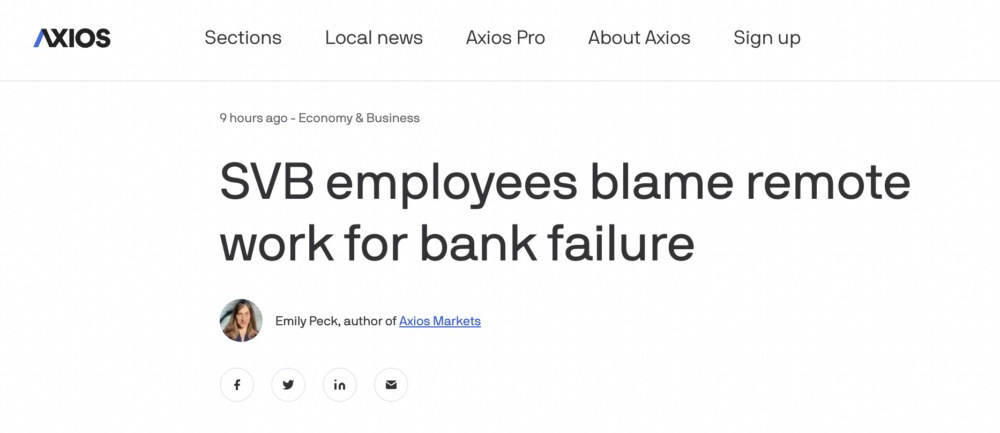Almost buried in Facebook’s last announcement of its workforce changes was its data on in-person vs remote work:
In-person time helps build relationships and get more done
We’re committed to distributed work. That means we’re also committed to continuously refining our model to make this work as effectively as possible.
Our early analysis of performance data suggests that engineers who either joined Meta in-person and then transferred to remote or remained in-person performed better on average than people who joined remotely. This analysis also shows that engineers earlier in their career perform better on average when they work in-person with teammates at least three days a week. (emphasis added) This requires further study, but our hypothesis is that it is still easier to build trust in person and that those relationships help us work more effectively.
As part of our Year of Efficiency, we’re focusing on understanding this further and finding ways to make sure people build the necessary connections to work effectively. In the meantime, I encourage all of you to find more opportunities to work with your colleagues in person.
I call it out not because it’s a profound insight, but because Facebook is actually speaking with data, and it’s confirming what most of us think. That at least when you start, working in the office with colleagues helps you learn and perform better. And being at least partially in-person after that (3 days for them) showed higher performance.
I’m not reading too much either way here, and Facebook is a far bigger and more established company than any of us are running.
But they do have data, and they look at data. And it’s at least useful to see what they’ve learned. It helps to get going in an office with peers before going remote. And it helps to work 3 days a week in the office.
At Team SaaStr, we’re 90% distributed. We’re mostly all-in ourselves on being remote (with some of us partially in a Palo Alto office now). But it’s still helpful to learn from data.

And in the latest head-scratcher, SVB employees are blaming remote work in part for SVB’s failure. I’m not sure that alone is the root cause, in any case, a reminder that the issues here are nuanced and complicated.


